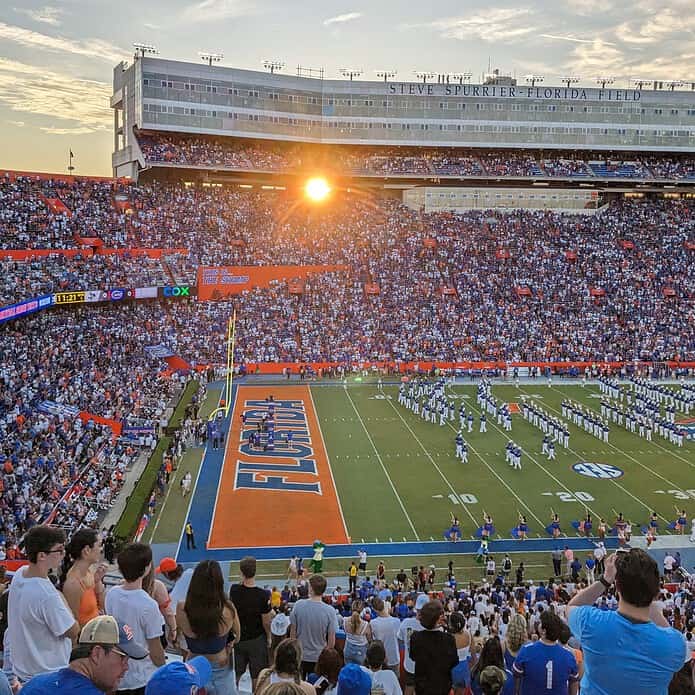Until recently, college athletes were unable to profit from their name, image, and likeness because they were considered amateurs and prohibited from receiving monetary compensation for their athletic accomplishments. However, not all student-athletes at the University of Florida are involved in NIL.
“I’m not currently involved but would like to be in the future,” sophomore swimmer Daniel Gordon said. “I am waiting to decide which deal would fit my goals and visions. I don’t want to rush into anything and want a better understanding before I do.”
Effective July 1, 2021, the NCAA approved a policy allowing student-athletes to profit from their name, image and likeness by monetizing their personal brand and participating in product endorsements without jeopardizing their eligibility to play college sports.
Due to a lack of national regulation, NIL guidelines vary from state to state and university to university. The absence of national regulation has caused some concern and confusion from spectators about different universities with fewer restrictions on poaching athletes or how NIL should work.
To establish a national standard for college athletics, Rep. Gus Bilirakis’ office announced on Jan. 11 that he is working on a bill, the Fairness, Accountability, and Integrity in Representation of College Sports Act, that would create “a national framework to govern how student-athletes receive compensation for name, image, and likeness (NIL) deals.” It would also provide college athletes and institutions with a clear and consistent framework for how to move forward and quell any confusion surrounding NIL.
At UF, student-athletes can choose to participate in NIL by entering into the NIL portal. Within the NIL portal are collectives. A collective is an organization independent of the university where donors pool money to help compensate student-athletes for their name, image and likeness. For example, Florida Victorious is a collective that sets students up with agents, lawyers, accountants and partnerships with companies.
Since its implementation, NIL has significantly impacted student-athletes and universities. One outcome that has arisen from NIL at UF is the increase of resources available to college athletes for understanding and navigating NIL rights.
UF public relations professor Mickey G. Nall created a course called personal branding for sports and entertainment to help student-athletes navigate NIL deals and build personal brands. The class consists of student-athletes and public relations majors working together as teams to improve their personal branding skills and learn to utilize social media.
Nall wanted to form mini-agencies to help student-athletes learn how to work more professionally and effectively, “Their job is his or her study plus their work on the field or on the court, not to get contracts,” he said.
Other resources available to student-athletes, according to Senior Associate Athletics Director at the Florida Athletic Association, Steve McClain, are a variety of programs through the Hawkins Center at Farrior Hall that cover NIL topics. The association also added additional educational elements such as financial literacy, entrepreneurship, how to select an agent, tax implications and more.
UF swimmer Micayla Cronk said as a swimmer she is not really affected by NIL as much as football. She gets free shirts and shoes. For her, NIL has done nothing but promote products.
However, she said NIL may negatively affect some student-athletes by making them become more individualistic.
“It becomes more of ‘How much money can I make going here?’ Instead of ‘How am I going to help this team,’” Cronk said.
Another challenge faced by student-athletes is the current complexity and confusion surrounding NIL. Some college athletes at UF choose to opt out. McClain estimates only between 200 and 300 of the 500 student-athletes participate in NIL activity.
UF freshman computer science major Nicky Borden is in favor of NIL, “I think it is a pretty good way to give back to the college athlete,” he said. “It helps give back to them because they don’t get paid at all. And I like to see my favorite players making money before they go off to the NFL or NBA or any of that.”

